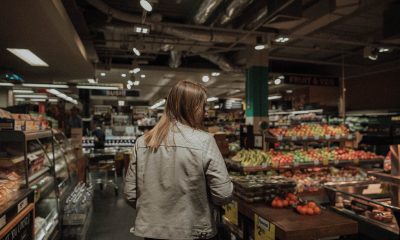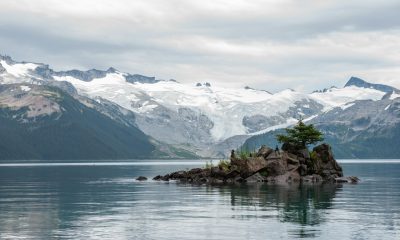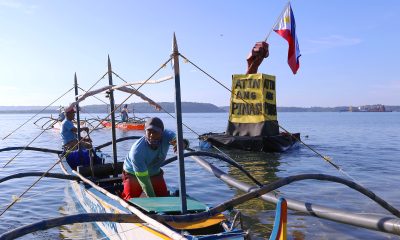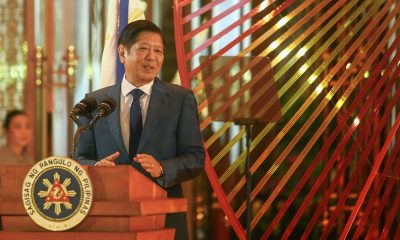Business and Economy
What are Australian-style and Canadian-style Brexit trade deals?

The terms “Australian-style” or “Canadian-style” Brexit are meant to convey to the British public the kind of trade relationship they can expect with the EU if no preferential free trade agreement (FTA) is concluded between the UK and the EU at the end of the transition period. (File Photo: @callmefred/Unsplash)
Negotiations for a post-Brexit trade deal between the European Union and the UK have been ongoing since March. Both have until the end of the Brexit transition period – December 31 – to strike a free trade deal. If no agreement is reached, the UK-EU trading partnership will be governed by World Trade Organization (WTO) rules.
The WTO is the only global organisation that deals with trade rules between nations, covering things like tariffs and product safety testing and certification procedures.
The terms “Australian-style” or “Canadian-style” Brexit are meant to convey to the British public the kind of trade relationship they can expect with the EU if no preferential free trade agreement (FTA) is concluded between the UK and the EU at the end of the transition period.
They are a short-hand way of telling the public that it is perfectly normal not to be a member of the EU or Single Market, because both Australia and Canada manage this and remain functional and amicable trading partners with the EU.
What is an Australian-style Brexit?
An Australian-style Brexit means there will be no trade deal with the EU. Although the EU has some smaller agreements with Australia recognising each other’s product safety certification procedures for certain kinds of goods.
This means goods and services imported into the UK will be taxed and vice versa and there could be delays at the border for inspections on some goods. At the moment, there are no tariffs on moving goods between the UK and EU and very few such inspections.
Under WTO Most Favoured Nation (MFN) rules (treating everyone the same), the EU’s average tariffs on manufactured goods are fairly low (around 4%) although they are somewhat higher on agricultural products and on some composite goods, such as automobiles.
Even without an FTA, WTO law prohibits unreasonable restrictions on trade in the form of excessive product safety certification procedures as well as subsidies that distort trade by granting financial support to struggling companies so that they can export at cheaper prices.
To be sure, trading with the EU without a preferential FTA would not be ideal for the UK, but it would be far from the disaster that many have fumed about for the past few years.
It is important to remember that the EU’s portion of UK’s total trade (currently high at around 40%) declines every year and only a fraction of British businesses export there. UK tariffs on EU goods (applied on a global WTO-MFN basis) are also fairly low across most products, although Britain can expect increases in the price of many foods, whereas products from outside the EU should become cheaper.
What is a Canadian-style Brexit?
Canada has an FTA which it concluded with the EU in 2016, its called the Comprehensive Economic and Trade Agreement (Ceta).
This agreement removed tariffs entirely on 98% of goods – a substantial improvement from the global WTO regime.
Ceta also streamlined product testing processes through enlarged mutual recognition, reducing the cost of trade in animal and plant products. On services, Ceta provides a framework for the mutual recognition of professional qualifications and removes some unfair nationality requirements. Much of Ceta is about cooperating on services rules going forward rather than genuinely expanding market access to sectors that were previously closed.
It is not clear what a Canada-style FTA between the UK and the EU would do with the Withdrawal Agreement (WA) and Northern Irish Protocol (NIP) which come into effect automatically at the end of the transition period.
Canada-style, the special option?
The WA/NIP are legally binding international treaties which have direct effect and supremacy in UK courts over UK laws.
Under the terms of the NIP, Northern Ireland must apply all EU laws on goods as they now stand and as they are changed by the EU in the future. All of these laws are under the direct jurisdiction of the EU Commission and the European Court of Justice (ECJ).
The UK must also observe EU regulatory controls on goods imported into Northern Ireland from Great Britain to ensure conformity with EU rules, even where the goods are not at risk of moving on into EU.
While Northern Ireland remains in the UK Customs Territory, it will be subject to EU tariffs on goods from Great Britain if the goods are at risk of going on into the EU. Northern Ireland will also be subject to EU tariffs on goods from Great Britain if they are partly made within Northern Ireland. Furthermore, Northern Ireland will be subject to the EU’s subsidy controls. These rules could end up applying to the granting of subsidies throughout the whole of the UK if any UK government support might theoretically affect trade between Northern Ireland and the EU, as determined by the ECJ.
Canada made no such commitments to the EU under Ceta. It would have been unthinkable and illegal under the Canadian Constitution to carve off one of their provinces with respect to international or internal trade and to subject trade rules to a wholly foreign court.
This is why, to exit the EU on genuine Australian, no-deal or WTO terms, the UK government would need to reject the WA/NIP. This now appears unlikely.![]()
![]()
David Collins, Professor of International Economic Law, City, University of London
This article is republished from The Conversation under a Creative Commons license. Read the original article.





















